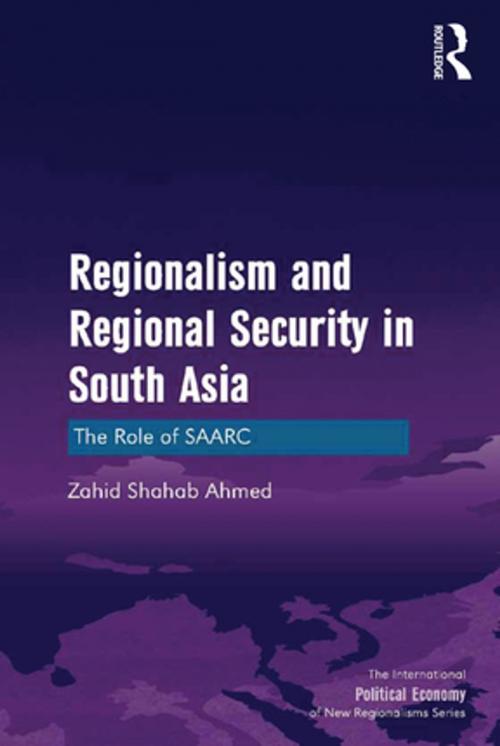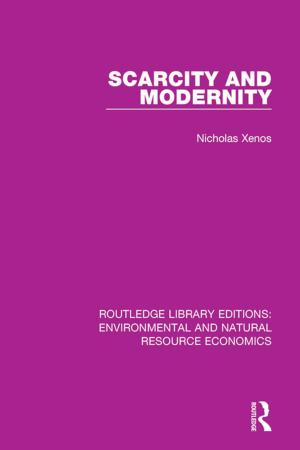Regionalism and Regional Security in South Asia
The Role of SAARC
Nonfiction, Social & Cultural Studies, Political Science, Politics, Economic Conditions| Author: | Zahid Shahab Ahmed | ISBN: | 9781317069003 |
| Publisher: | Taylor and Francis | Publication: | April 8, 2016 |
| Imprint: | Routledge | Language: | English |
| Author: | Zahid Shahab Ahmed |
| ISBN: | 9781317069003 |
| Publisher: | Taylor and Francis |
| Publication: | April 8, 2016 |
| Imprint: | Routledge |
| Language: | English |
Zahid Shahab Ahmed evaluates the progress of the South Asian Association for Regional Cooperation (SAARC). This study goes beyond economic integration to present a detailed appraisal of cooperation under the overarching themes of economic cooperation, environmental security, human welfare, and cooperation in security matters. According to the author, SAARC is making progress in addressing the myriad of issues on its agenda. The transition from agreements to actions and frequent interactions among the member states has boosted confidence. The progress of SAARC is more evident in the less controversial areas of human security, such as poverty alleviation, health and safety, human resources development, and higher education. Notwithstanding enthusiastic commitments reflected in agreements and action plans, there is a gulf between rhetoric and implementation most notably in sensitive areas relating to traditional security. In the light of the findings of this study, the author proposes that greater cooperation in common human security areas has a potential to pave the way for a cooperation on issues of a ’contentious’ nature, particularly terrorism.
Zahid Shahab Ahmed evaluates the progress of the South Asian Association for Regional Cooperation (SAARC). This study goes beyond economic integration to present a detailed appraisal of cooperation under the overarching themes of economic cooperation, environmental security, human welfare, and cooperation in security matters. According to the author, SAARC is making progress in addressing the myriad of issues on its agenda. The transition from agreements to actions and frequent interactions among the member states has boosted confidence. The progress of SAARC is more evident in the less controversial areas of human security, such as poverty alleviation, health and safety, human resources development, and higher education. Notwithstanding enthusiastic commitments reflected in agreements and action plans, there is a gulf between rhetoric and implementation most notably in sensitive areas relating to traditional security. In the light of the findings of this study, the author proposes that greater cooperation in common human security areas has a potential to pave the way for a cooperation on issues of a ’contentious’ nature, particularly terrorism.















